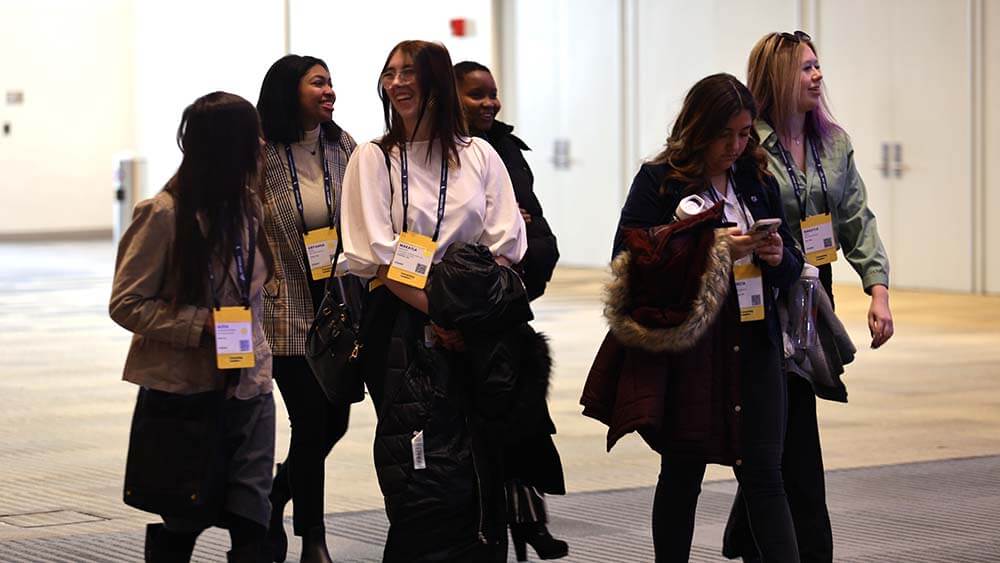
Next Gen Event Goers, as a group, are more likely to be female, are more diverse, and have higher levels of education than event goers over 45, the studies show.
A new wave of event attendees is on the horizon and signals a paradigm-changing generational shift, according to a report released today by global event company Freeman. A key data point is the drop in the average age of B2B event attendees — from 51, before the pandemic, to 45 — Ken Holsinger, Freeman’s senior vice president for strategy told Convene. The shift, which emerged in a series of behavioral surveys of B2B event attendees across a variety of industries conducted over the last 18 months, “is the most dramatic movement we have seen in benchmarking this over the past 30-plus years,” Holsinger said.
He attributed the drop in average age to factors including the accelerated retirement of baby boomers during the pandemic, a group which had been elevating the average age of eventgoers for a decade. As boomers have stepped back, Holsinger said, there is “a looming workforce change that we are seeing, all of the sudden, in events,” tied to the fact that millennials now make up the largest generation in the workforce. Gen X, the second-biggest generation in the workforce, isn’t large enough to pick up the leadership baton being passed by the boomers, Holsinger said. “We’re seeing this younger audience move up rapidly.”
“Freeman Trends Report: Event Attendee Intent and Behavior Q1 2023,” identifies attendees aged 20 to 44 as NGEGs — Next Gen Event Goers. As a group, they are more likely to be female, are more diverse, have higher levels of education than eventgoers over 45, “and they have different mindsets,” Holsinger said.
Overall, survey results indicate increased attendance at in-person events and a big bump in the number of attendees who planned to attend multiple events in 2023, although event attendance still lags behind pre-COVID levels. Ninety-three percent of NGEGs have gone to an event in the last 12 months, and almost half said they plan to attend two to three events next year, which can be attributed in part to the desire to get back to normal after two years of remote work, the report said. “Even with easing of [COVID] restrictions,” according to the report, “NGEGs say there continue to be fewer opportunities to meet with colleagues than there used to be, which is debatably the biggest downside to remote culture for them.”
NGEGs also are more likely to be interested in online events than those aged 45 and over, but will expect interactivity, customized experiences, and exclusive content, the report said. NGEGs “are ready to be in person but are open to going online if it feels like a unique experience they can’t access elsewhere.”
NGEGs are mindful of smaller budgets and find it difficult to negotiate time away from their personal obligations, the report said. “NGEGs are showing a clear preference for physically coming together, but that does not mean they want a standardized experience.” The older demographic has tolerated being held captive at events, the report concluded — NGEGs expect “to be captivated.”
Barbara Palmer is deputy editor of Convene.
